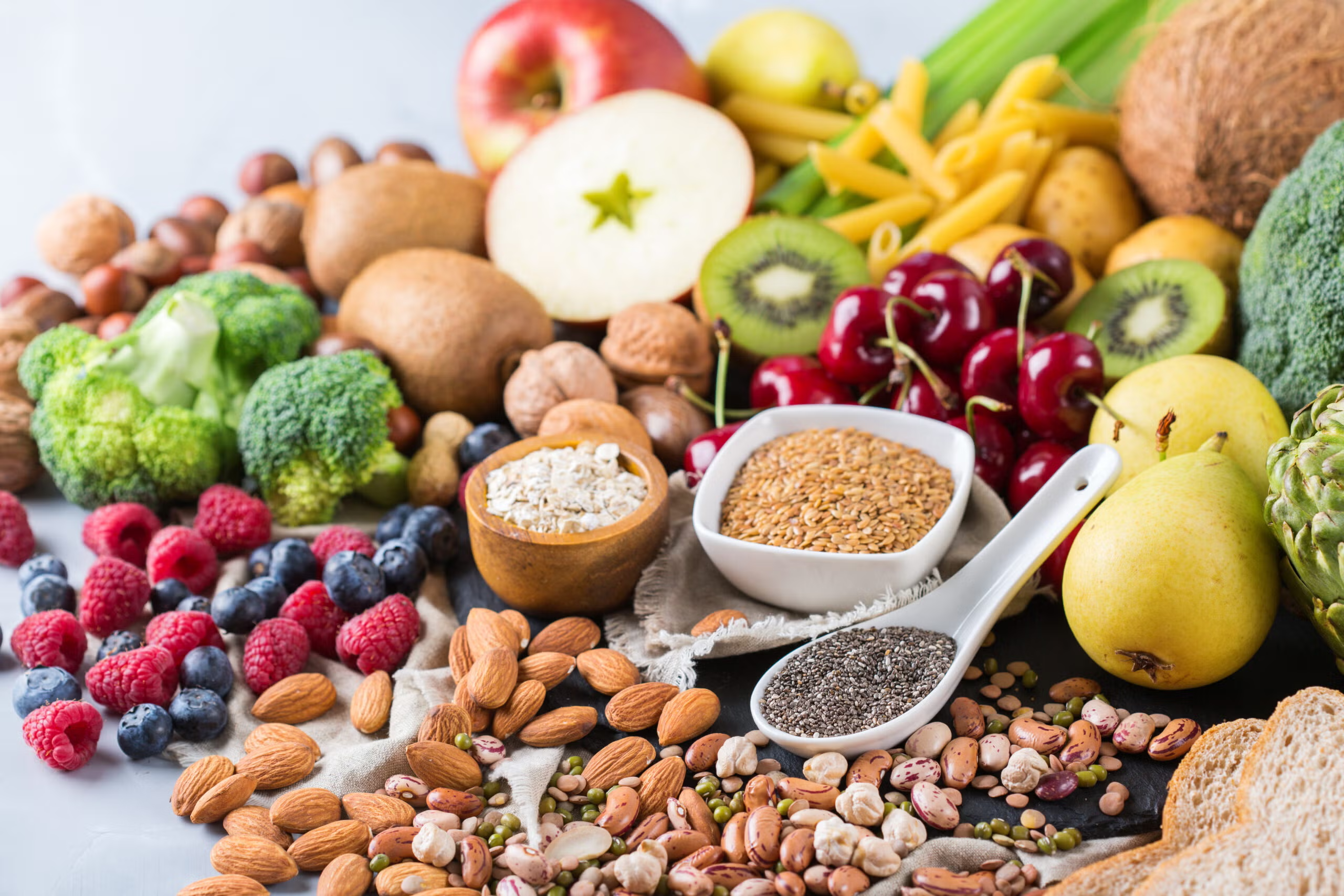ISO 34560 Total Fiber Measurement in Nutritional Products
The ISO 34560 standard provides a robust methodology for determining total dietary fiber content in nutritional products. This service is crucial for manufacturers, quality managers, and compliance officers seeking accurate quantification of total dietary fiber to meet regulatory requirements and ensure product labeling integrity.
Total dietary fiber is an essential component in the nutrition industry due to its health benefits such as promoting digestive health, lowering cholesterol levels, and aiding weight management. Ensuring the correct amount of total dietary fiber in nutritional products is not only a matter of compliance but also a way to enhance consumer trust and satisfaction.
The methodology described by ISO 34560 involves several steps that are meticulously detailed within the standard. Initially, the sample is prepared by thoroughly homogenizing it, ensuring an even distribution of fiber content throughout the matrix. The preparation phase is critical as any inconsistencies can lead to inaccurate results, which could impact product labeling and consumer perception.
The subsequent step in total dietary fiber analysis involves extraction of insoluble fiber using a combination of alkali treatment followed by centrifugation. This process ensures that all components of insoluble fiber are effectively extracted without compromising the integrity of other nutrients present in the sample. Following this, the supernatant is neutralized and filtered to isolate soluble fiber.
The quantification of both soluble and insoluble dietary fiber fractions is then performed using gravimetric methods or spectrophotometric techniques as specified by the standard. This ensures precision and accuracy in measuring each fraction separately before summing them up to determine the total dietary fiber content.
For accurate results, it's essential that all equipment used adheres strictly to ISO 34560 guidelines. This includes calibrated balances for precise mass measurements during extraction processes, appropriate reagents for chemical treatments, and specialized filtration devices designed specifically for separating dietary fibers from other components of food matrices.
The importance of this service extends beyond mere compliance; it plays a pivotal role in maintaining product integrity and enhancing consumer confidence. By adhering to ISO 34560 standards, manufacturers can demonstrate their commitment to quality assurance, thereby building long-term relationships with customers who value transparency and reliability.
Additionally, compliance with these international standards helps businesses stay ahead of regulatory changes and market demands related to dietary fiber content labeling. It also supports research efforts aimed at understanding better how different types of fibers contribute differently towards overall health benefits.
Applied Standards
- ISO 34560-1:2021 - Sampling and preparation for total dietary fiber determination in food products.
- ISO 34560-2:2021 - Extraction of insoluble dietary fiber from food products.
- ISO 34560-3:2021 - Determination of soluble dietary fiber in food products.
The application of these standards ensures that the total dietary fiber measurements are consistent, accurate, and reliable across various laboratories worldwide. This consistency is vital for ensuring fair competition among producers and protecting consumers' interests by providing them with transparent information about their purchases.
Customer Impact and Satisfaction
Enhanced Compliance: By leveraging our expertise in ISO 34560 total fiber measurement, clients can ensure full compliance with relevant regulations. This reduces the risk of non-compliance penalties while maintaining a positive reputation.
- Guaranteed adherence to international standards.
- Reduced likelihood of product recalls due to incorrect labeling.
- Increased customer trust and loyalty through transparent communication about nutritional content.
Innovation Support: Our detailed analysis helps R&D teams refine formulas, optimize ingredient mixes, and explore new fiber sources. This supports continuous improvement initiatives aimed at enhancing product quality and expanding into emerging markets.
Supply Chain Optimization: Accurate total dietary fiber measurement allows companies to source raw materials more effectively, leading to cost savings and improved supply chain efficiency. Moreover, it enables better management of inventory levels based on actual nutritional profiles rather than estimates or assumptions.
Environmental and Sustainability Contributions
Accurate total dietary fiber measurement plays a significant role in promoting sustainability within the food industry. By ensuring that products contain the specified amount of dietary fiber, manufacturers contribute to reducing waste by optimizing resource use during production processes. Additionally, this service supports efforts towards sustainable agriculture practices through better understanding of crop nutrient compositions.
Moreover, accurate labeling encourages consumers to make informed choices about their dietary habits, which can lead to healthier lifestyles and reduced environmental impact associated with poor diet choices. This aligns perfectly with global sustainability goals related to nutrition and health.





